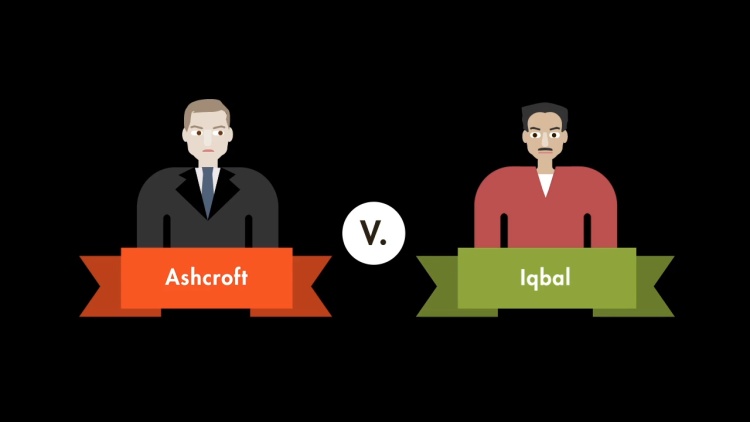Ashcroft v. Iqbal
United States Supreme Court
556 U.S. 662 (2009)
- Written by DeAnna Swearingen, LLM
Facts
Javaid Iqbal (plaintiff) was arrested and detained during the investigation of the September 11, 2001, terrorist attacks. Iqbal claimed that the conditions of the custody violated the First and Fifth Amendments to the United States Constitution and sued former United States Attorney General John Ashcroft, Federal Bureau of Investigation Director Robert Mueller, and other officials (defendants) in district court. The complaint accused Ashcroft of being the “principal architect” and Mueller of being “instrumental” in the implementation of a discriminatory policy of confining individuals in harsh conditions based solely on their “religion, race, and/or national origin.” Ashcroft and Mueller claimed qualified immunity and moved to dismiss Iqbal’s complaint for failure to state a claim. The district court denied the motion to dismiss. On appeal, the United States Court of Appeals for the Second Circuit affirmed after considering whether Iqbal’s complaint satisfied the pleading standard set forth in Bell Atlantic Corp. v. Twombly, 550 U.S. 544 (2007), which requires that a complaint contain enough factual allegations to state a plausible claim for relief. The Second Circuit held that Iqbal had alleged enough facts to allow the case to proceed. Ashcroft and Mueller petitioned the United States Supreme Court for a writ of certiorari, which was granted.
Rule of Law
Issue
Holding and Reasoning (Kennedy, J.)
Dissent (Breyer, J.)
Dissent (Souter, J.)
What to do next…
Here's why 910,000 law students have relied on our case briefs:
- Written by law professors and practitioners, not other law students. 47,100 briefs, keyed to 997 casebooks. Top-notch customer support.
- The right amount of information, includes the facts, issues, rule of law, holding and reasoning, and any concurrences and dissents.
- Access in your classes, works on your mobile and tablet. Massive library of related video lessons and high quality multiple-choice questions.
- Easy to use, uniform format for every case brief. Written in plain English, not in legalese. Our briefs summarize and simplify; they don’t just repeat the court’s language.





